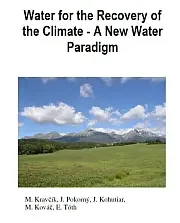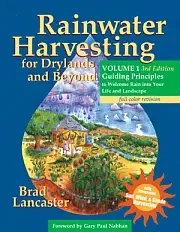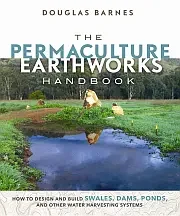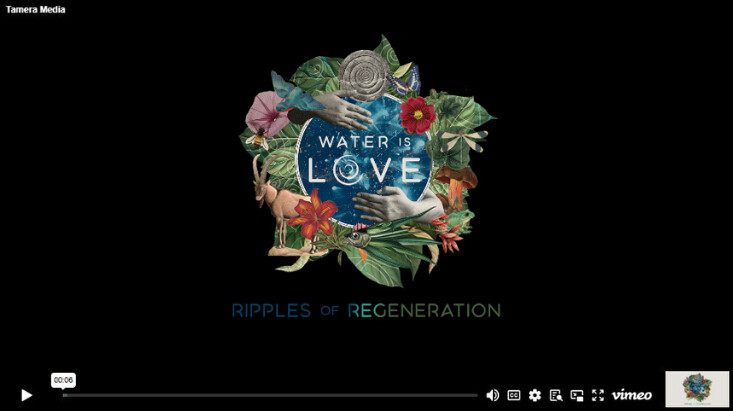Повече информация и ресурси
Новата Водна Парадигма
Публикация за Новата водна парадигма от Кравчик и съавтори (на английски)
Download from the Biodiversity for a Living Climate Website.
Инфилтрация на вода
Книги и уебсайт на Брад Ланкастър (на английски)
Rainwater Harvesting for Drylands and Beyond Volume 1
Rainwater Harvesting for Drylands and Beyond Volume 2
HarvestingRainwater.com
Youtube Channel:@HarvestingRainwater
Ръководство за пермакултурни земни съоръжения (на английски)
Book by Douglas Barnes
Published by New Society Publishers.
Видеа и документални филми
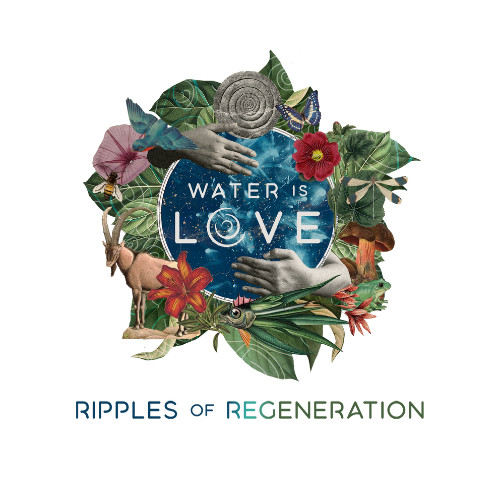
Водата е любов – Вълни на възстановяване
Документален филм
„Водата е любов“ проследява група млади хора, които се изправят срещу климатичната криза, докато заедно с тях обикаляме света, за да споделим вдъхновяващи истории за регенеративен дизайн на екосистеми и създаване на воден запас в общности, села и цели региони.
Предлагат се български субтитри.
Изберете български субтитри от настройките.
Мини-гори

Видео курс за създаване на мини гори (на английски)
12-частен безплатен видео курс, създаден от Afforestt чрез краудфъндинг (дарителска кампания). Afforestt е индийска компания, която подпомага организации и отделни хора в създаването на мини гори по целия свят.
Afforestt video course

Материали за мини гори (на английски)
Tiny Forest Handbook Created by IVN Nature Education in the Netherlands.
Miyawaki Method Handbook created Kenty County Council in the UK.
Свържи се с нас
Изпрати ни съобщение, ако имаш въпроси или искаш да споделиш нещо!
Научни статии
Contrasting roles of interception and transpiration in the hydrological cycle – Part 1: Temporal characteristics over land. Earth System Dynamics, 5(3), 441–469.
link
Ellison, D., Morris, C. E., Locatelli, B., Sheil, D., Cohen, J., Murdiyarso, D., … & Sullivan, C. A. (2017). Trees, forests and water: Cool insights for a hot world.
Global Environmental Change, 43, 51–61.
link
Makarieva, A. M., & Gorshkov, V. G. (2007). Biotic pump of atmospheric moisture as driver of the hydrological cycle on land. Hydrology and Earth System Sciences, 11(2), 1013–1033.
link
te Wierik, S. A., Cammeraat, E. L. H., Gupta, J., & Artzy-Randrup, Y. A. (2021).
Reviewing the impact of land use and land-use change on moisture recycling and precipitation patterns.
Water Resources Research, 57, e2020WR029234.
link
Bisselink, B., & Dolman, A. J. (2008).
Precipitation recycling: Moisture sources over Europe using ERA-40 data.
Journal of Hydrometeorology, 9(5), 1073–1083.
link
Bisselink, B., & Dolman, A. J. (2009).
Recycling of moisture in Europe: Contribution of evaporation to variability in very wet and dry years.
Hydrology and Earth System Sciences, 13(9), 1685–1697.
link
Seneviratne, S. I., Lüthi, D., Litschi, M., & Schär, C. (2006).
Land–atmosphere coupling and climate change in Europe.
Nature, 443(7108), 205–209.
link
Bierkens, M. F. P., & van den Hurk, B. J. J. M. (2007).
Groundwater convergence as a possible mechanism for multi-year persistence in rainfall.
Geophysical Research Letters, 34, L02402.
link
Haga, D. I., Iannone, R., Wheeler, M. J., Mason, R., Polishchuk, E., Fetch, T., van der Kamp, B. J., McKendry, I. G., & Bertram, A. K. (2014). Ice nucleation by fungal spores from the classes Agaricomycetes, Ustilaginomycetes, and others. Atmospheric Chemistry and Physics, 14(16), 8611–8630.
link
Paasonen, P., Asmi, A., Petäjä, T., Kajos, M. K., Äijälä, M., Junninen, H., Holst, T., Abbatt, J. P. D., Arneth, A., Birmili, W., van der Gon, H. D., Hamed, A., Hoffer, A., Laakso, L., Laaksonen, A., Leaitch, W. R., Plass-Dülmer, C., Pryor, S. C., Räisänen, P., Swietlicki, E., Wiedensohler, A., Worsnop, D. R., Kerminen, V.-M., & Kulmala, M. (2013). Warming-induced increase in aerosol number concentration likely to moderate climate change.
Nature Geoscience, 6, 438–442.
link
Pöhlker, M. L., Pöhlker, C., Ditas, F., Klimach, T., Hrabe de Angelis, I., Araújo, A., Brito, J., Carbone, S., Cheng, Y., Chi, X., Ditz, R., Gunthe, S. S., Kandler, K., Kesselmeier, J., Könemann, T., Krüger, O. O., Lavrič, J. V., Martin, S. T., Mikhailov, E., Moran-Zuloaga, D., Rose, D., Saturno, J., Su, H., Thalman, R., Walter, D., Wang, J., Wolff, S., Barbosa, H. M. J., Artaxo, P., Andreae, M. O., & Pöschl, U. (2018).
Long-term observations of cloud condensation nuclei in the Amazon rainforest – Part 1: Aerosol size distribution, hygroscopicity, and new model parametrizations for CCN prediction. Atmospheric Chemistry and Physics, 18(14), 10289–10331.
link
Akram, M. T., Khan, M. M., Nabi, T., Qadri, R., Al-Maskri, A., & Khan, M. A. (2025). Miyawaki technique for sustainable urban greening and ecological restoration: A review. CABI Reviews, 20(1), 0028.
link
Mihailova, M. (2022).
Micro forests as a way in EU agriculture to implement „green policy“ and create sustainable biomass. In Proceedings of the 15th International Scientific Conference WoodEMA 2022: Crisis Management and Safety Foresight in Forest-Based Sector and SMEs Operating in the Global Environment (pp. 257–263). Institute of Agricultural Economics, Sofia, Bulgaria.
link
Schirone, B., Salis, A., & Vessella, F. (2011).
Effectiveness of the Miyawaki method in Mediterranean forest restoration programs. Landscape and Ecological Engineering, 7(1), 81–92.
link
Sušnik, J., Masia, S., Kravčík, M., Pokorný, J., & Hesslerová, P. (2022).
Costs and benefits of landscape-based water retention measures as nature-based solutions to mitigating climate impacts in eastern Germany, Czech Republic and Slovakia. Land Degradation & Development, 33(16), 4512–4526.
link
Huryna, H., & Pokorný, J. (2016).
The role of water and vegetation in the distribution of solar energy and local climate: a review. International Journal of Water, 10(2/3), 197–217.
link
Hesslerová, P., Pokorný, J., & Huryna, H. (2021). Wetlands and forests regulate climate via evapotranspiration. In R. Finlayson, M. Everard, K. Irvine, & M. McInnes (Eds.), Wetlands: Ecosystem Services, Restoration and Wise Use (pp. 627–642). Springer, Cham.
link
Ellison, D., Morris, C. E., Locatelli, B., Sheil, D., Cohen, J., Murdiyarso, D., Gutierrez, V., van Noordwijk, M., Creed, I. F., Pokorný, J., Gaveau, D., Spracklen, D. V., Bargués Tobella, A., Ilstedt, U., Teuling, A. J., Gebrehiwot, S. G., Sands, D. C., Muys, B., Verbist, B., Springgay, E., Sugandi, Y., & Sullivan, C. A. (2018).
Forests, atmospheric water and an uncertain future: the new biology of the global water cycle. Forest Ecosystems, 5, 19.
link
Hesslerová, P., Pokorný, J., Huryna, H., & Procházka, J. (2024).
From fields to microclimate: Assessing the influence of vegetation cover on local climate regulation. Preprint published on Preprints.org.
link
Ellison, D. (2024).
Even cooler insights: On the power of forests to water the Earth and cool the atmosphere. Global Change Biology, 30(13), e17246.
link

